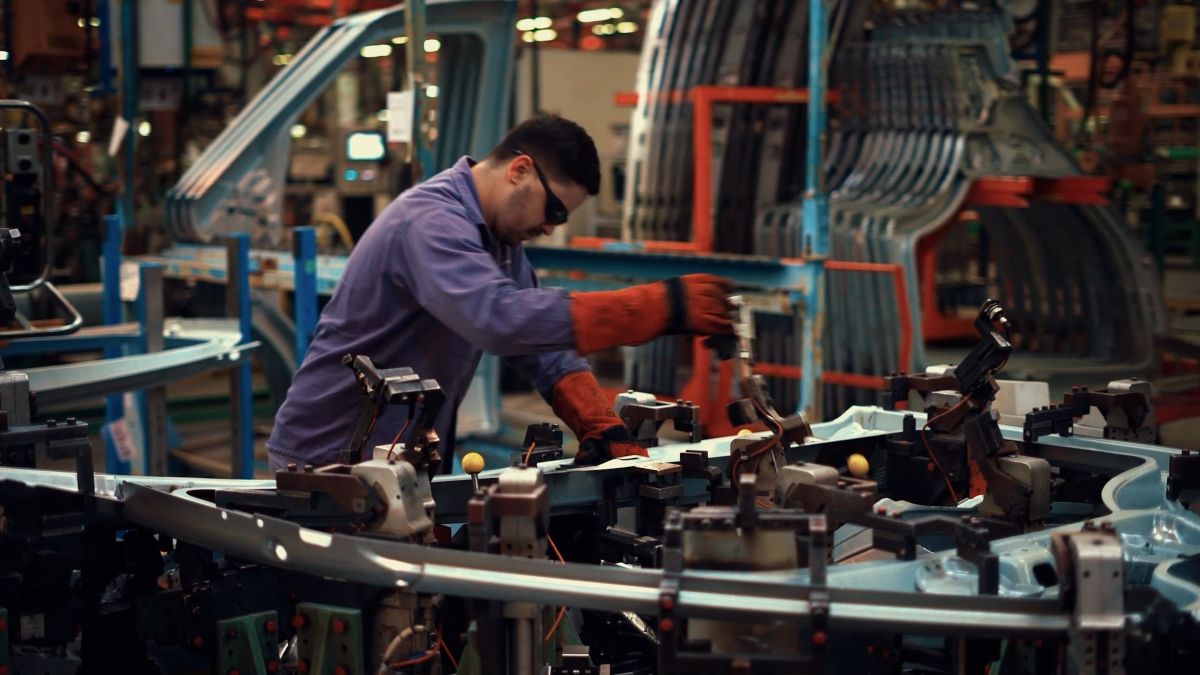The Argentine industry It crosses a delicate moment. According to recent data, between March and June 2025, the Industrial Production Index fell 2.1%, accumulating four consecutive months of fall and placing levels comparable to September 2007, almost 18 years ago.
A CICEC report, based on INDEC and faithful data, highlights that Only “4 of the 16 industrial sectors” presented positive variations in that period. Among the most affected are:
The sector with greater weight in production food and drinks It also contributed significantly to the general setback, with a fall that explained a third of the total collapse.
This contrasts with a turbulent scenario: although in May 2025 thirteen of the sixteen industrial divisions they showed interannual increases, with sectors such as the automaker (+20.9%) and wood/papers/printing (+13.6%), the improvement is perceived isolated against the context of structural stagnation.
During 2024, the industry registered one of the most pronounced falls since 2002. According to INDEC, manufacturing production decreased by 9.4 % year -on -year, while construction fell 27.4 %. The country thus closed one of its worst productive performances in two decades, which aggravates the starting point of the economy.
The Government faces a complex dilemma: financing in pesos without resorting to excessively high interest rates that make the fiscal cost and drown the private sector.
- Balance: Very high rates ensure placement, but affect the sustainability of debt and make credit to the productive sector more expensive.
- Credibility: The key goes through tax and monetary consistency. If a stability framework is consolidated, debt confidence in pesos can be sustained without exorbitant rates.
- Savings in pesos: Indexed instruments (CER, dual) can offer real coverage to the domestic investor and strengthen demand.
The situation also reopens a substantive debate: the need to consolidate the local capital market as a source of financing.
IMPULSE TO SMEs: Small and medium enterprises concentrate more than 70 % of formal private employment, but only access a minimal credit fraction. A deeper capital market would allow these companies to be financed in better conditions, without relying exclusively on the banking system.
Instruments such as SME negotiable obligations and deferred payment checks endorsed ** have already proven useful tools, but require larger scale and liquidity.
Productive development as an engine: by strengthening access to financing, investment, innovation and employment creation are encouraged, generating a virtuous circle that expands the tax base and improves macroeconomic sustainability.
The industrial fall reflects structural weaknesses that the current situation has deepened. The government should not only focus on stabilizing macroeconomics and reducing the cost of financing, but also in laying the foundations for a solid capital market, which channels internal savings towards productive investment.
The future of the Argentine economy will depend largely on how sustainable debt is articulated, accessible financing for SMEs and a real impulse to production as the engine of development.
Financial Analyst
Source: Ambito
David William is a talented author who has made a name for himself in the world of writing. He is a professional author who writes on a wide range of topics, from general interest to opinion news. David is currently working as a writer at 24 hours worlds where he brings his unique perspective and in-depth research to his articles, making them both informative and engaging.




